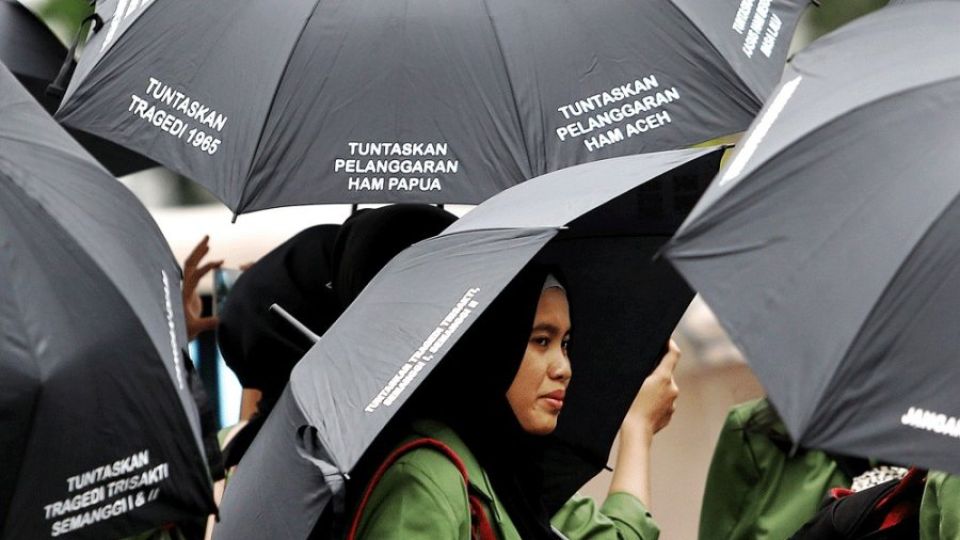June 27, 2023
JAKARTA – President Joko “Jokowi” Widodo will kick off the government’s efforts to settle past human rights abuses through non-judicial means at Rumoh Geudong in Pidie, Aceh, on Tuesday.
The historic site, which was used by the Indonesian Military (TNI) to torture civilians during the Aceh conflict, had served as a reminder of the past atrocities committed by Jakarta.
But the structure that occupied the site was demolished just a few days before the President’s visit, apparently without consulting the victims or their families, triggering a chorus of condemnation from human rights activists.
Earlier this year, President Jokowi expressed regret on behalf of the state for the country’s past human rights abuses, recognizing 12 such cases and promising to provide restitution to the victims, including those who suffered from the abuses committed at Rumoh Geudong, which served as the headquarters of the Army’s Special Forces (Kopassus) during their military operations in Aceh. For nine years, from 1989 to 1998, the house was used as a venue for the torture of civilians accused of being affiliated with the Free Aceh Movement (GAM).
In 1998, the original building was destroyed by locals out of fear that Rumoh Geudong would be used as a slaughterhouse again. They left only two walls, a staircase and two wells.
Read also: President Jokowi to start apology tour for past atrocities
The Pidie administration tore down the two remaining walls in preparation for Tuesday’s event. Acting Pidie regent Wahyudi Adisiswanto said the administration did not want the next generation to be saddened by reminders of the past.
“The demolition is meant to get rid of grudges,” he said last week, as quoted by CNN Indonesia.
Coordinating Political, Legal and Security Affairs Minister Mahfud MD, the head of the advisory team for the nonjudicial settlement plan, denied Wahyudi’s claim that the remaining structure of Rumoh Geudong had been demolished. He claimed the government would preserve the wells and stairs as a reminder of the tragedy.
The government reportedly would build a public park and a mosque on the site, having purchased a 7,000-square-meter plot of land that included the site for Rp 4 billion.
Read also: Nonjudicial resolution not enough, victims say
Mulki Makmun of Indonesia Asia Justice and Rights (AJAR) called on the government to consult with the victims before beginning any such project.
“We need to ask the victims what they want the Rumoh Geudong location to be used for. It cannot be done through a top-down mechanism,” he told The Jakarta Post on Saturday.
The activist said the government should focus on ensuring that the program was fair to all victims of human rights abuses.
Azharul Husna of the Aceh chapter of the Commission for Missing Persons and Victims of Violence (Kontras) noted that not all the people whom the National Commission on Human Rights (Komnas HAM) had designated as human rights victims in Aceh had been included on the list of beneficiaries of state restitution.
Read also: Government prepares reparations for victims as Jokowi regrets past atrocities
She cited the Simpang KAA case, which occurred on May 3, 1999, while Aceh was under martial law, which was lifted in 2005. The nonjudicial settlement team determined that only 10 victims of the Simpang KAA case would receive compensation, even though the rights body recorded 33 victims in its report to the Attorney General’s Office (AGO).
Moreover, the victims themselves contend that there were 146 victims, 46 of whom are still alive.
“Don’t let [the differences in data] cause jealousy among the victims,” said Aceh Community Socioeconomic Development (PASKA) director Farida Haryani.
The government has said it will continue to update the list of human rights victims eligible for compensation.


